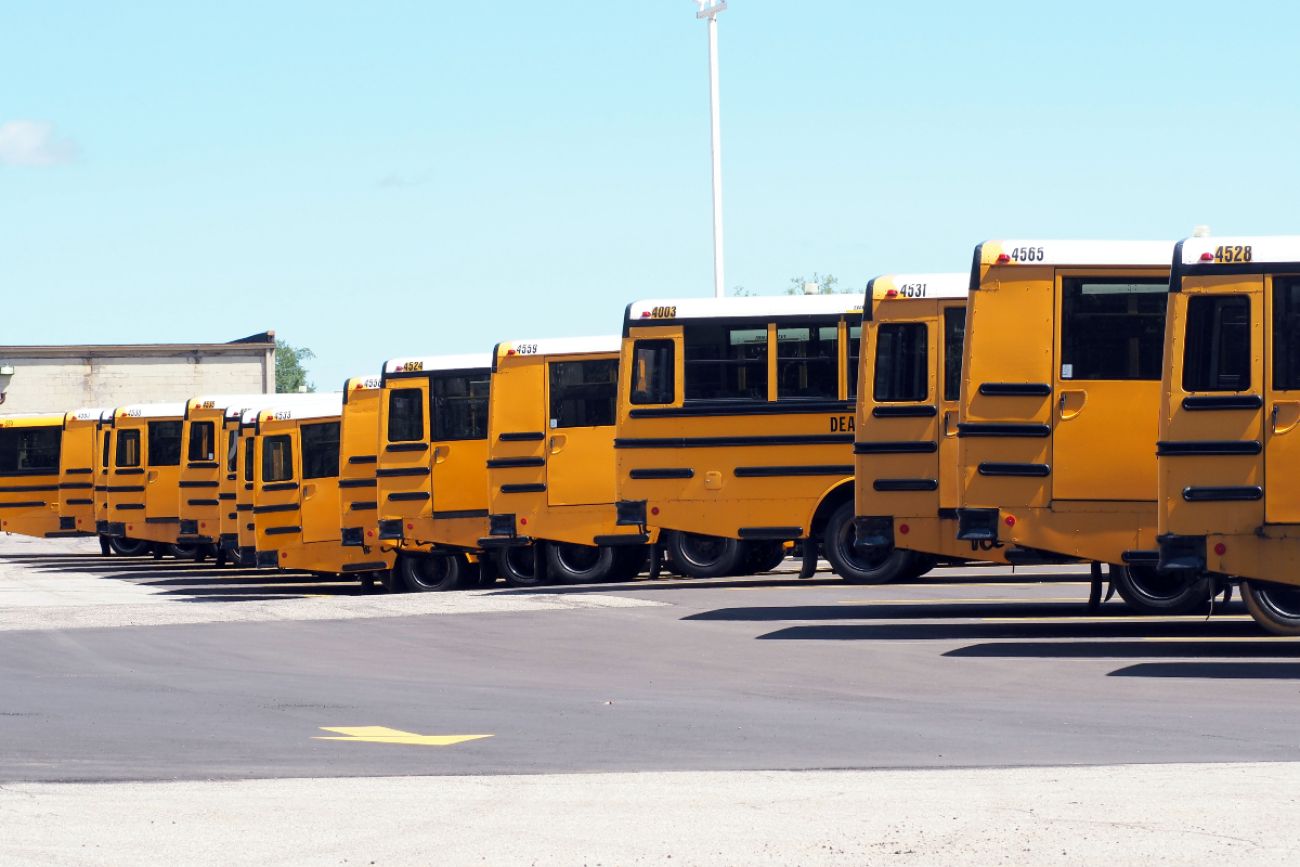Michigan education budget has smaller-ticket items that may have big impact

The most notable winners in Michigan’s $21.5 billion budget for K-12 schools will be the state’s neediest students, English language learners, children in high-poverty schools, and special education students.
But with smaller amounts, the budget also delivers money to benefit teachers, Detroit schools and other local districts, campus infrastructure, community-based advocacy efforts, regional education nonprofits and rural districts. Those less-noticed budget items could have a significant impact on education across the state.
Here’s a closer look at the smaller-ticket budget items that may provide larger payoffs.
Money to tackle statewide teacher shortage
While a shortage of teaching applicants is a national issue, Greg Nyen, superintendent of the Marquette-Alger Regional Educational Services Agency in the Upper Peninsula, said the scarcity of educators is acute in Michigan.
“About 10 years ago, 23,000 teachers or potential teachers were in educational preparatory programs across the state,” he said. “Last year, there were under 15,000. Only about 20 percent end up completing their certification.”
As part of an effort to address the shortage, a number of districts will receive a total of $76.4 million to support Talent Together, a partnership among 48 school systems and nine universities that widens pathways for aspiring teachers.
“So often, when new teachers start, they don't feel successful,” said Jack Elsey, founder of the nonprofit Michigan Educator Workforce Initiative. “Over half quit in the first year.”
Related:
The new collaborative aims to tackle barriers for prospective teachers, Elsey said, including paying for their training, offering paid apprenticeships in the classroom, and mentoring them while they are in those programs.
Districts will also be granted a total of $50 million to expand support for new teachers, school counselors and administrators, including mentor stipends and professional development.
And the budget allocates $63.8 million to districts to increase pay for educators.
“Elevating salaries and making this career an attractive one once again makes the financial burden lighter and makes it feel like it’s worth the effort,” Elsey said.
Financial awards for teachers who have national board certification will be funded with $4 million. Eligible teachers in districts that apply for the funds will receive $4,000 and an additional $6,000 if they work in Title I schools, which have large concentrations of students from low-income households.
Paula Herbart, president of the Michigan Education Association, the state’s largest teachers union, called the funding a proactive step in recruiting and retaining quality educators.
“It’s critical that we keep great educators on the job and attract talented people into this noble profession, and this budget agreement provides our schools with much-needed resources to help accomplish these goals,” she said in a statement.
Detroit community initiatives get support
- The budget provides $6 million for a local or intermediate school district to use on services from Get On And Learn, or GOAL Line, a program that transports students from northwest Detroit schools to free after-school programs. The nonprofit began in 2018 as an effort to get students to school and decrease absenteeism. But after listening to parent feedback, the group ended morning transportation and focused solely on after-school bus rides. In November, the organization’s waitlist was bigger than its enrollment due to financial constraints.
- The budget will give $3 million to local districts to distribute to the Detroit Parent Network, a nonprofit that works to engage parents in their kids’ education. Those dollars will help cover the cost of training for parents, health resources, support groups, civic engagement programs and advocacy to families. The nonprofit also offers a literacy program in English and Spanish as well as workforce development.
- The Legislature voted to give $2 million to the nonprofit group Brilliant Detroit for neighborhood-based tutoring and non-instructional services for children ages 3 to 12. The group transforms underused housing into neighborhood centers focused on early childhood development and kindergarten readiness.
Other district initiatives win funding
- The Novi Community School District will receive $1 million to support a wellness center that will offer onsite mental health support for students outside the regular school day, a medical clinic that will provide basic care to students with and without insurance and a building wing for staff to destress and exercise. The center will also use the funds to offer onsite, after-school tutoring for students who can’t afford private instruction and will create a hub for families to access other health resources.
- The budget allocates $2 million to Hamtramck Public Schools to hire accelerated-learning coaches for all eight of its schools. The coaches will lead targeted tutoring efforts in the district; work with teachers to model lesson plans and co-teach; and identify gaps in instruction. The money will also provide professional development for the coaches on data analysis, among other areas.
- The budget provides $100,000 to a district to support the Student Advocacy Center of Michigan’s statewide helpline for families in “educational crisis.”
- Dearborn City School District will receive $250,000 to support a cybersecurity certificate program.
Construction projects get a boost
- The Detroit Public Schools Community District will get $6.5 million for essential structural improvements and renovations for Coleman A. Young Elementary and another $5 million for needed updates to its Foreign Language Immersion and Cultural Studies School building.
- The Beecher Community School District near Flint will receive $2.5 million to fund the construction of a new high school to match money already raised through donations.
- Waverly Community Schools in Lansing is set to get $3 million to build a new high school auditorium.
- The budget provides $500,000 to Eastpointe Community Schools to build a new swimming pool.
Programs for rural and ‘isolated’ districts
- The budget provides $11.6 million in special weighted funding for instructional costs in rural and isolated districts.
- A new rural-educator credentialing hub pilot program will get $15 million in startup funding. The program will provide free support to educators for credentialing and course fees. According to many administrators and a recent report, rural schools face unique challenges in attracting teachers.
- Grosse Ile Township Schools will get $500,000 because students must cross a bridge to travel to their campuses, and the school system has not gotten funding under an existing allocation for isolated districts.
- The state created a school transportation fund and will deposit $350 million this fiscal year, $125 million of which will be spent by districts in the 2023-24 school year. The funds will likely benefit rural schools the most, which spend on average $200 more per pupil on transportation than nonrural districts.
Other items
- Districts including DPSCD (Detroit) will be awarded a total of $1 million to purchase tampons or menstrual pads to distribute free to students in school bathrooms.
- Districts will receive $125 million total in grants to buy less-polluting buses.
- More than $6 million in a new one-time pot of money will go to partnership schools which will be used to improve attendance, increase graduation rates, and reduce class sizes, among other targeted initiatives. Partnership schools are low-performing schools that operate under support agreements with the state to improve their operations.
- Covenant House Michigan, a religious nonprofit that mostly serves students experiencing homelessness and housing insecurity in Detroit and Grand Rapids, will receive $1 million to support its residential education program. The organization offers shelter, educational and vocational programs, and support for survivors of human trafficking.
Hannah Dellinger is a reporter for Chalkbeat Detroit covering K-12 education. Contact Hannah at hdellinger@chalkbeat.org.
Michigan Education Watch
Michigan Education Watch is made possible by generous financial support from:
Subscribe to Michigan Education Watch
See what new members are saying about why they donated to Bridge Michigan:
- “In order for this information to be accurate and unbiased it must be underwritten by its readers, not by special interests.” - Larry S.
- “Not many other media sources report on the topics Bridge does.” - Susan B.
- “Your journalism is outstanding and rare these days.” - Mark S.
If you want to ensure the future of nonpartisan, nonprofit Michigan journalism, please become a member today. You, too, will be asked why you donated and maybe we'll feature your quote next time!






